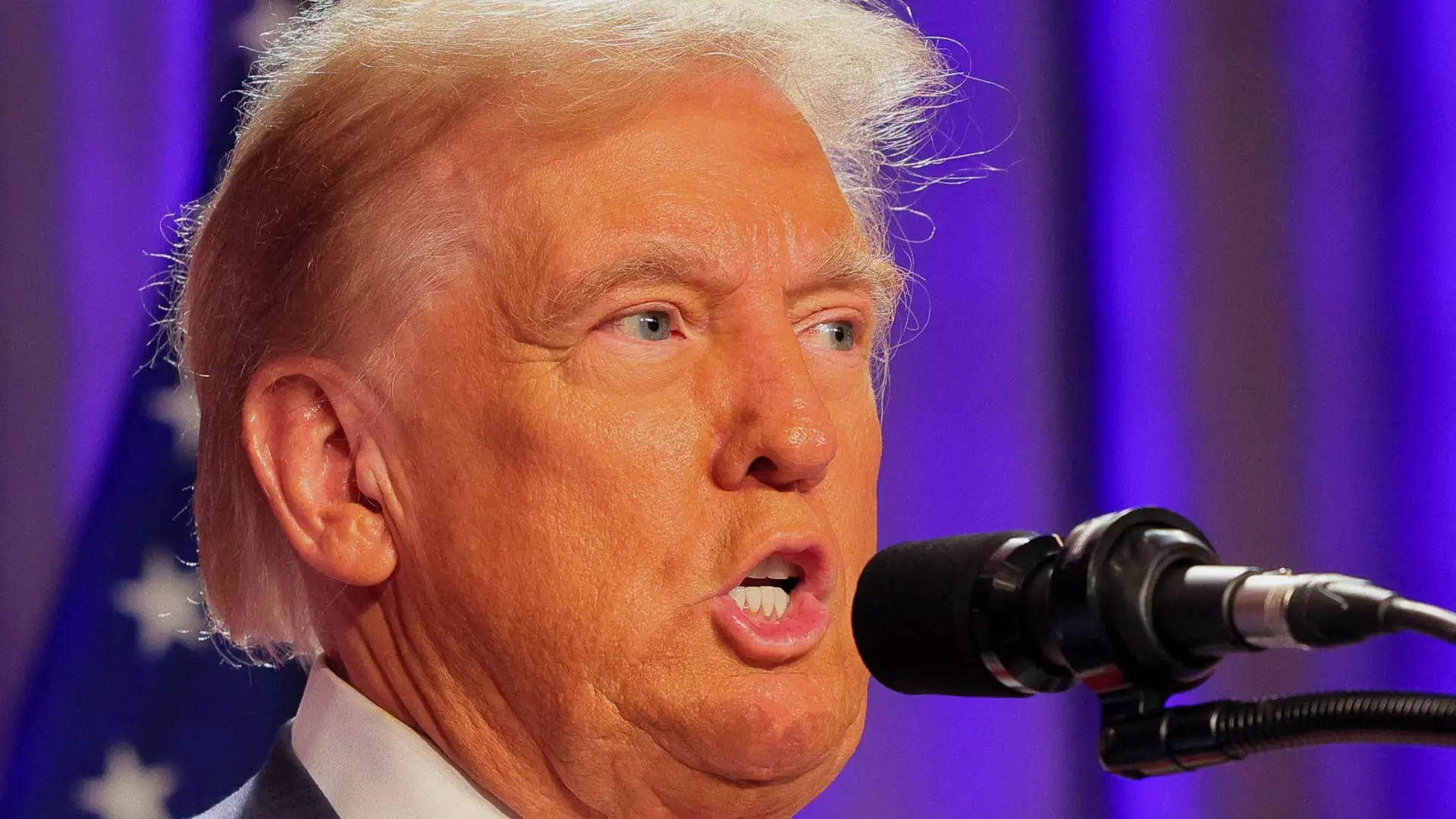The landscape of U.S. foreign policy is on the brink of a transformation as the incoming president, Donald Trump, expresses intentions to alter military support dynamics, particularly concerning Ukraine. In a revealing interview with NBC’s “Meet the Press,” Trump suggested that the substantial military aid the U.S. has provided to Ukraine since the onset of conflict in February 2022 may see a reduction under his administration. With ongoing tensions and the looming specter of Russian aggression in the background, these statements invite scrutiny and raise questions about the future of America’s role on the global stage.
In his dialogue with Kristen Welker, Trump emphasized an essential narrative about shared responsibility—the notion that European nations should contribute more equitably to the military support of Ukraine. He pointed out the disparity in commitments, noting, “We’re in for $350 billion, and Europe is in for $100 billion.” This statement highlights a long-standing frustration towards European allies, suggesting that U.S. taxpayers bear a disproportionate burden for collective security. Trump’s remarks underline a critical juncture in the transatlantic alliance, where questions of equity and mutual responsibility must be addressed to maintain unity. The expectation that Europe should increase its military aid to Ukraine aligns with a broader nationalistic rhetoric prioritized during Trump’s previous term, emphasizing “America First” sentiments over collaborative international approaches.
In examining Trump’s comments about Ukrainian President Volodymyr Zelenskyy, an interesting perspective emerges. Trump previously referred to Zelenskyy as “maybe the greatest salesman of any politician that’s ever lived,” attributing the influx of U.S. military assistance not to the dire needs of Ukraine but rather to Zelenskyy’s adept diplomacy. This framing raises pertinent questions about the underlying reasons for U.S. involvement: Is it genuinely about alleviating humanitarian concerns, or is it a realm of geopolitics where negotiation skills can drive foreign aid? By painting Zelenskyy’s diplomatic maneuvers in a favorable light, Trump potentially downplays the critical circumstances Ukraine faces.
Trump’s reiteration of NATO as a financial burden on the U.S. has not only been a hallmark of his political stance but signifies a growing rift within the alliance. He stated that NATO members must “pay their bills,” hinting at a transactional approach to military alliances. The potential implications of Trump’s perspective are vast; they pose risks to the unity of NATO, particularly as the organization has previously operated on principles of shared defense against threats such as Russia. The notion that the U.S. might reassess its commitment to NATO could lead to increased instability in Europe, potentially emboldening adversaries like Russia in their regional ambitions.
Trump’s vociferous call for an immediate ceasefire and negotiations in Ukraine showcases a crucial pivot in rhetoric as he seeks to leverage his relationships with world leaders—including Vladimir Putin and Xi Jinping. By asserting that he could broker peace quickly upon taking office, Trump attempts to position himself as a peacemaker, underscoring his self-described ties to Putin as a tool for negotiation. This ambitious assertion raises skepticism, particularly regarding the feasibility of conciliation in a conflict marked by deeply entrenched positions on both sides. The complexities of the conflict warrant nuanced engagement, yet Trump’s simplistically presented solution suggests an overly optimistic approach.
A broader implication of Trump’s foreign policy could extend to U.S.-China relations, particularly regarding Taiwan. His refusal to clarify whether he would intervene if China invaded Taiwan signals a shift towards a more ambiguous approach that might embolden Chinese assertiveness in the region. By stating that he prefers not to see China take aggressive measures while simultaneously withholding a definitive stance on U.S. response, Trump’s strategy appears reactionary rather than proactive. This ambiguity could have long-term consequences for American credibility in defending its allies.
As Trump prepares to assume office, the anticipation surrounding potential changes in U.S. foreign policy and military commitments looms large. His remarks present a critical juncture not only for U.S.-Ukraine relations but also for the global order at large. With a strong emphasis on transactional relationships and a call for shared responsibilities, the future trajectory of U.S. leadership is uncertain. Will America continue its traditional role as a global leader, or will it retreat into isolationism, leaving allies to fend for themselves? The responses to these complex questions will likely shape the geopolitical landscape for years to come.


Leave a Reply